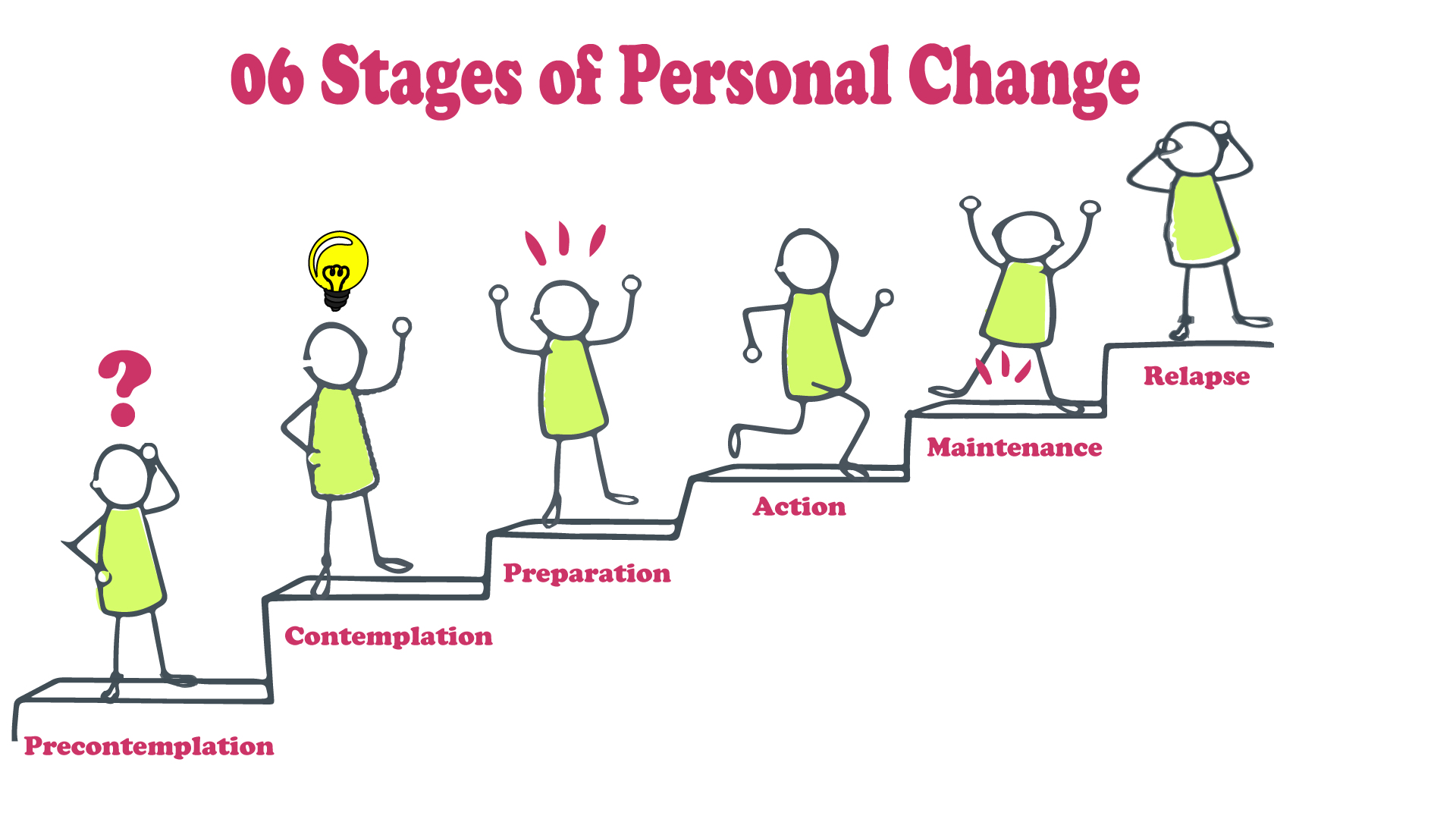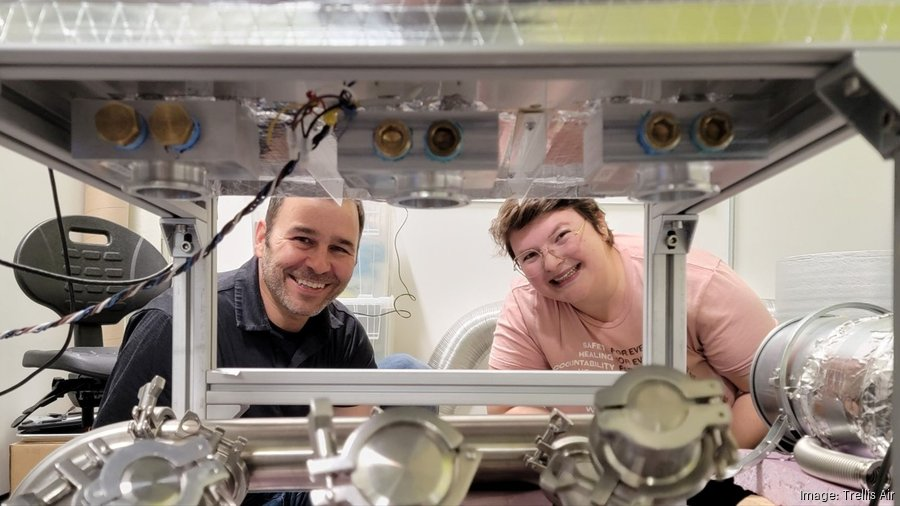Personal change is an inevitable part of the human experience, significant in shaping our identities and paths. As we navigate life, we often encounter circumstances that compel us to adapt, leading to moments of self-improvement and resilience. The insights from the Harvard Study of Adult Development underline the profound impacts of personal change on mental health and well-being. Embracing change, rather than resisting it, can foster a deeper understanding of ourselves and promote growth. Ultimately, the capacity for personal change highlights our potential to thrive amidst challenges in life.
The journey of transforming oneself is a continuous process, often referred to through various lenses, such as self-discovery and adaptation. Whether it’s adjusting to new life circumstances or pursuing goals that allow for growth, this evolution reflects our innate ability to learn from experiences. The dynamics of personal evolution are influenced by different factors, including psychological aspects from studies on human behavior and development. Acknowledging this transformative aspect of life invites individuals to confront both challenges and opportunities inherent in their journeys. As we explore these changes, they enrich our understanding of resilience and the pursuit of mental wellness.
The Nature of Personal Change
Personal change is an inevitable part of human life and often arises from our experiences, both positive and negative. Many people find themselves reflecting on their lives during critical transitions, such as entering a new decade, starting a new job, or after significant life events. According to the Harvard Study of Adult Development, we continue to evolve psychologically and biologically well into adulthood, signaling that personal change can be both intentional and organic. Awareness of these changes allows us to embrace them positively, contributing to our personal growth.
Moreover, individuals may feel pressured to adapt in various aspects of their lives, such as mental health and relationships. Personal change often involves a commitment to self-improvement, which can lead to increased resilience and enhanced well-being. Embracing change can foster adaptability, helping individuals navigate life’s uncertainties more effectively and leading to a more fulfilled life.
The Role of Self-Improvement in Change
Self-improvement plays a crucial role in facilitating personal change. It is the conscious effort to evolve beyond our current selves by setting goals and striving for betterment across various domains—be it mental health, skills, or relationships. Research indicates that adopting a proactive mindset towards self-improvement equips individuals with the tools necessary to change their circumstances positively. This drive not only enhances personal development but also nurtures relationships as individuals become better versions of themselves.
However, the journey of self-improvement is not linear; it often consists of ups and downs. Many times, individuals encounter disillusionment—a theme highlighted by experts from the Harvard Study of Adult Development. This disillusionment can cloud our perception of progress and make it difficult to acknowledge the changes occurring within us. Yet, it also serves as a catalyst for deeper personal exploration, leading to transformative insights and ultimately, profound self-acceptance.
Adaptation to Change: Why We Resist
Change is a fundamental aspect of life; however, many individuals resist it due to fear of the unknown. This resistance can manifest in various areas, from career choices to personal relationships. Psychologists suggest that our inherent desire for stability often leads to avoidance behaviors. As discussed in discussions surrounding adapting to change, facing our fears can be daunting, yet the ability to embrace what is unfamiliar can prompt significant personal growth.
The fear of losing what is familiar can create a psychological barrier that hinders adaptation. Many people may choose to remain in their comfort zones, even if it means sacrificing their potential for happiness and fulfillment. Understanding and recognizing these fears is essential in fostering resilience. By acknowledging that personal change can lead to new opportunities, individuals can shift their perspectives and approach transitions with a more open mindset.
Mental Health and Personal Change
Mental health plays a fundamental role in how individuals approach personal change. Individuals dealing with anxiety or low self-esteem often grapple with accepting change due to fears surrounding their abilities to cope with new situations. The insights provided by the Harvard Study emphasize that mental well-being is dynamic; individuals can experience fluctuations that influence their capacity to adapt positively. It’s essential to recognize that changes in our mental state can directly impact our willingness to embrace transformation in our lives.
Moreover, enhancing mental health through self-care practices and seeking support can empower individuals to take the necessary steps towards change. Therapy and counseling can provide individuals with strategies to build resilience, thereby fostering a greater openness to change. In effect, prioritizing mental health supports personal growth, enabling individuals to navigate life’s challenges more effectively and promoting a healthier relationship with change.
Cultivating Resilience through Change
Resilience is the capacity to recover quickly from difficulties and is a vital component when grappling with change. Those who can adapt effectively often find themselves experiencing more profound personal transformation. According to researchers at Harvard, resilience is learned through experience; as individuals encounter challenges, they develop the coping strategies necessary to overcome obstacles. This learning process cultivates an inner strength that encourages further exploration and growth.
It’s important to note that resilience does not mean an absence of struggle; rather, it suggests a capacity to face difficulties and emerge stronger. Practicing resilience involves building emotional intelligence and leveraging social support systems. By understanding that personal change is not always comfortable, individuals can better prepare themselves to tackle adversity and pave the way for personal development.
The Influence of Social Dynamics on Change
Social dynamics significantly influence our experiences of change and personal development. One key aspect is the role of relationships in shaping how individuals perceive their own capacity for change. Supportive social networks encourage individuals to embrace change as they witness others striving for growth and improvement. The conversations surrounding adaptability indicate that people often find it easier to navigate transitions when they have encouraging voices surrounding them.
Moreover, group dynamics can either bolster or hinder personal transformation. On one side, communities can foster environments of positive reinforcement, making it easier for individuals to embrace their journeys of self-improvement. Conversely, negative social influences can perpetuate fear or self-doubt, thus hindering one’s capacity for change. Engaging with a supportive community can vastly enhance the ability to pursue meaningful changes in life while cultivating a sense of belonging.
Changing Perspectives: A Holistic View
A holistic view of change encompasses the understanding that personal transformation is multi-faceted. It recognizes that any significant life changes are influenced by a variety of internal and external factors, including societal expectations, personal values, and emotional well-being. By examining these diverse elements, individuals can gain clearer insight into their motivations for seeking change. Reflecting on the interplay of these factors can illuminate pathways toward meaningful personal growth.
Moreover, fostering an environment where holistic change can thrive necessitates openness and flexibility. Acknowledging the interconnectedness of mind, body, and spirit allows individuals to explore new avenues for personal development. Embracing holistic perspectives aids in aligning one’s goals with their core values, empowering them to make more profound shifts that resonate with their true selves.
The Science Behind Change: Insights from Research
Understanding the science of change, as illuminated by studies like the Harvard Study of Adult Development, provides individuals with frameworks to navigate their journeys of personal transformation. Research supports the notion that individuals have the capacity for significant change throughout their lives. This realization can be both liberating and motivating, helping people seize opportunities for self-improvement at any stage of life. With the backing of empirical evidence, individuals can approach change not merely as a discomforting ordeal but as a profound source of growth.
Additionally, scientific insights regarding brain plasticity reveal that our minds are malleable and capable of forming new connections throughout our lives. This concept encourages people to view challenges as potential growth opportunities, fostering a mindset that values resilience and adaptation. Understanding these scientific principles can empower individuals to cultivate an adaptive mindset that embraces change and adversity as integral components of the human experience.
Finding Balance in Change and Stability
Striking a balance between change and stability is crucial in leading a fulfilling life. While personal change can be essential for growth, too much change can lead to anxiety and confusion. Establishing routines, maintaining connections, and finding moments of stability can anchor individuals during transitional periods. This balance supports a sense of security while allowing room for adaptability and exploration.
Moreover, recognizing the importance of stability can serve to enhance our experiences of change. Stable environments provide the support we need to undertake personal changes in a manner that feels safe and manageable. By cultivating both stability and adaptability, individuals can navigate their personal transformation journeys with a sense of ease and empowerment.
The Future of Personal Change: Embracing New Opportunities
Looking ahead, the future of personal change offers new opportunities for growth and self-discovery. As society evolves, individuals are increasingly presented with various avenues for change, driven by technological advancements, globalization, and shifting cultural norms. These changes prompt individuals to rethink their self-identities, their roles in communities, and their aspirations.
Embracing these future possibilities allows individuals to shape their own narratives and explore novel pathways for improvement. Preparing for change requires a mindset that values flexibility while remaining open to learning. The potential for personal transformation remains boundless, and cultivating the right attitude can usher individuals into a future where they view change as a welcomed companion on their journey toward personal fulfillment.
Frequently Asked Questions
What is personal change and how does it relate to self-improvement?
Personal change refers to the transformation or adaptation of an individual’s thoughts, behaviors, and emotions over time. It is closely linked to self-improvement as it involves actively setting goals and making deliberate choices to enhance one’s life. Engaging in personal change can lead to greater resilience, improved mental health, and a deeper understanding of oneself.
How can adapting to change improve mental health?
Adapting to change is crucial for maintaining mental health. When individuals embrace change rather than resist it, they can reduce stress and anxiety associated with uncertainty. Developing resilience—a key component of mental well-being—allows people to navigate life’s challenges, fostering a healthier mindset and overall emotional stability.
Can personal change occur at any stage of life, according to the Harvard Study of Adult Development?
Yes, the Harvard Study of Adult Development shows that personal change is possible at any life stage. The study indicates that individuals can experience significant psychological and biological shifts as they age, emphasizing that personal growth continues throughout adulthood, challenging the belief that change is limited to youth.
What role does resilience play in personal change and development?
Resilience is fundamental to personal change, as it empowers individuals to recover from setbacks and adapt to new circumstances. By fostering resilience, people can better handle life’s challenges, facilitating personal development and allowing for meaningful changes in their lives.
How can someone overcome the fear of change to pursue personal growth?
To overcome the fear of change, individuals should focus on small, manageable steps towards their goals. Embracing a mindset of curiosity and viewing change as an opportunity rather than a threat can help. Building a support system and practicing self-compassion can also ease the transition and encourage personal growth.
What techniques can help facilitate personal change and self-improvement?
Techniques such as setting SMART goals (Specific, Measurable, Achievable, Relevant, Time-bound), engaging in mindfulness practices, seeking feedback from others, and reflecting on personal experiences can facilitate personal change. These methods encourage self-awareness, motivation, and accountability in the journey of self-improvement.
Is it possible to change implicit biases through personal change?
Absolutely. Research, including insights from the Harvard Study of Adult Development, shows that implicit biases can change over time through awareness, education, and intentionality. Engaging in self-reflection and exposure to diverse perspectives fosters understanding and can help mitigate ingrained biases.
How does the pursuit of personal change relate to happiness?
The pursuit of personal change is often linked to happiness, as setting and achieving personal growth goals provides a sense of purpose and accomplishment. However, it’s essential to approach change mindfully, as an excessive focus on self-improvement can sometimes lead to disappointment rather than fulfillment.
What are some common barriers to personal change and how can they be overcome?
Common barriers to personal change include fear of failure, comfort with the status quo, and negative self-perceptions. Overcoming these barriers involves cultivating a growth mindset, seeking support from friends or professionals, and progressively stepping out of one’s comfort zone to embrace new experiences.
How does understanding the complexity of personal change improve our approach to self-improvement?
Understanding the complexity of personal change allows individuals to recognize that growth is not linear and often involves setbacks. This perspective promotes patience and self-acceptance, enabling a more compassionate approach to self-improvement and allowing for realistic expectations as one navigates their personal development journey.
| Key Point | Explanation |
|---|---|
| Change is Inevitable | According to Robert Waldinger, resisting change leads to suffering. Change is a constant part of life that we all experience. |
| Intentional vs. Subconscious Change | Change can be pursued intentionally through goals, but can also happen subconsciously due to experiences. |
| Disillusionment | Richard Weissbourd discusses disillusionment’s impact on change, either leading to bitterness or a deeper understanding of reality. |
| Impact of Age on Perception of Change | Waldinger notes that as people age, their perception of life’s finiteness can trigger significant shifts in their behavior and outlook. |
| Individual Differences in Change | Mahzarin Banaji explains that some people are more open to change based on their temperament, which can be influenced by culture. |
| Change is not always Positive | Not all change experiences are beneficial; negative experiences can lead to harmful changes or withdrawal from life. |
| Cognitive Bias on Change | We often focus on negative changes rather than positive ones due to cognitive biases, which can skew our perception of progress. |
| Social Change | Cultural shifts, such as the decrease in anti-gay bias in the last decade, illustrate that societal change is possible. |
| The Journey of Self-Acceptance | We have a responsibility to improve ourselves while also aiming for self-acceptance to enhance our interactions with others. |
Summary
Personal change is an ongoing journey that each individual must navigate throughout life. It is essential to recognize that personal change can be both intentional and unintentional, influenced by our experiences and circumstances. The discussion among experts reveals that while resistance to change can lead to suffering, embracing change opens doors to growth and self-improvement. Therefore, by fostering a mindset that accepts the inevitability of change, we can shift our perspectives positively and utilize it as a powerful tool for personal development.







